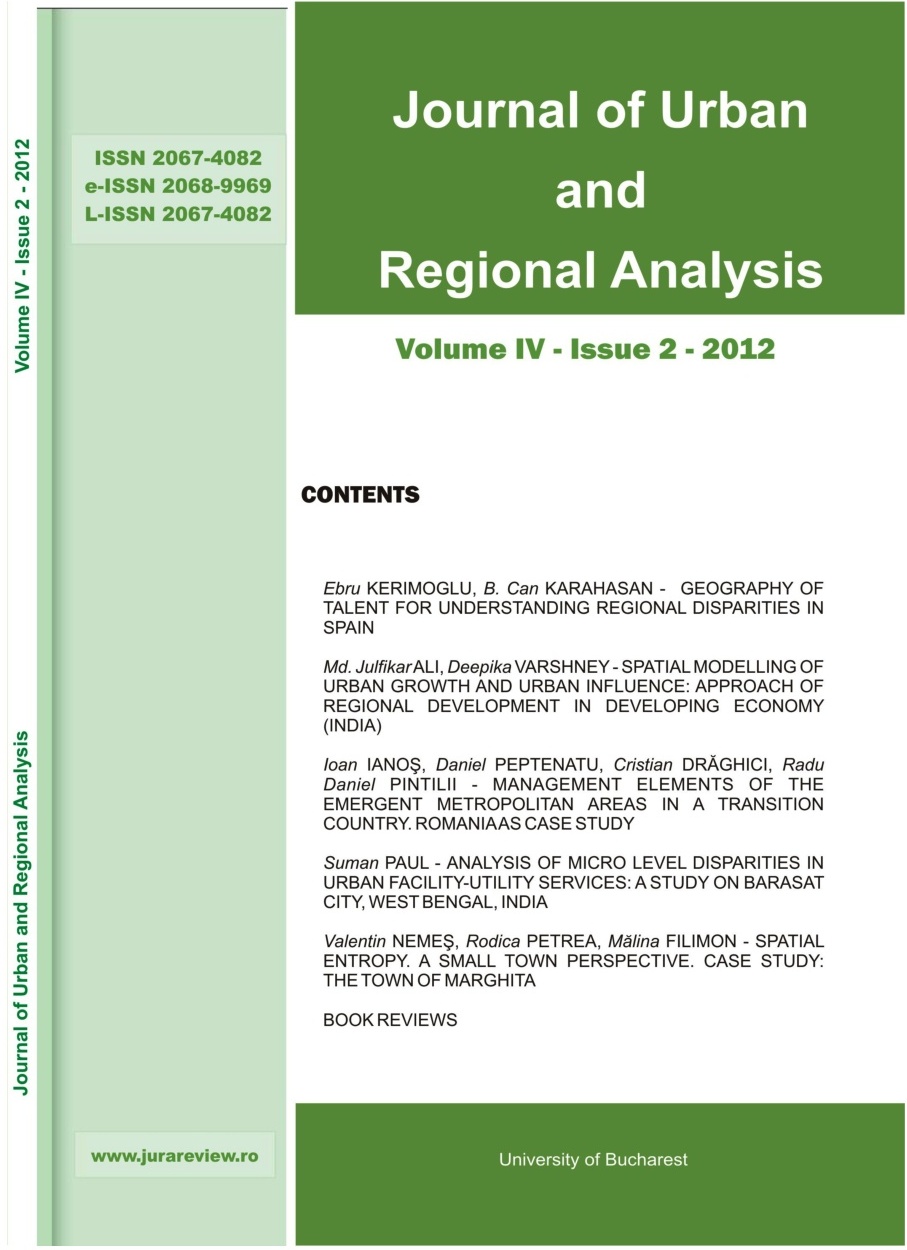MANAGEMENT ELEMENTS OF THE EMERGENT METROPOLITAN AREAS IN A TRANSITION COUNTRY. ROMANIA, AS CASE STUDY
MANAGEMENT ELEMENTS OF THE EMERGENT METROPOLITAN AREAS IN A TRANSITION COUNTRY. ROMANIA, AS CASE STUDY
Author(s): Ioan Ianoş, Daniel Peptenatu, Cristian Drăghici, Radu Daniel PintiliiSubject(s): Business Economy / Management, Human Geography, Regional Geography, Governance, Policy, planning, forecast and speculation, Rural and urban sociology, Economic development
Published by: Editura Universitară
Keywords: emergent metropolitan area; managerial experiences; consensus management; metropolitan governance;
Summary/Abstract: Complex processes, specific to the countries in transition, have had major impacts on restructuring the territorial management systems. The removal of restrictions of limiting urban expansion, imposed by the totalitarian regime, has allowed the rapid expansion of cities, beyond administrative boundaries, since 1989. The concept of emerging metropolitan area is explained by the multitude of problems posed by the sketching of these areas and especially by their functioning. Synthesizing, there are presented some managerial experiences considered inchoate, of some emerging Romanian metropolitan areas, with an emphasis on Bucharest’s metropolitan area. The conclusions of these descriptive analysis show the complexity of the problems that can occur during the process of building of the metropolitan areas under the circumstances of lack of an inter-municipal cooperation culture. Integrated management takes into account two realities: firstly, that the management of emerging metropolitan areas is trans-scalar, achieving the partial mergence of the management types (including the collegiate one), and secondly, that insuring a multi-level governance without implementing a polycentric intra-metropolitan development policy, is not sufficient.
Journal: Journal of Urban and Regional Analysis
- Issue Year: 4/2012
- Issue No: 2
- Page Range: 149-172
- Page Count: 24
- Language: English

